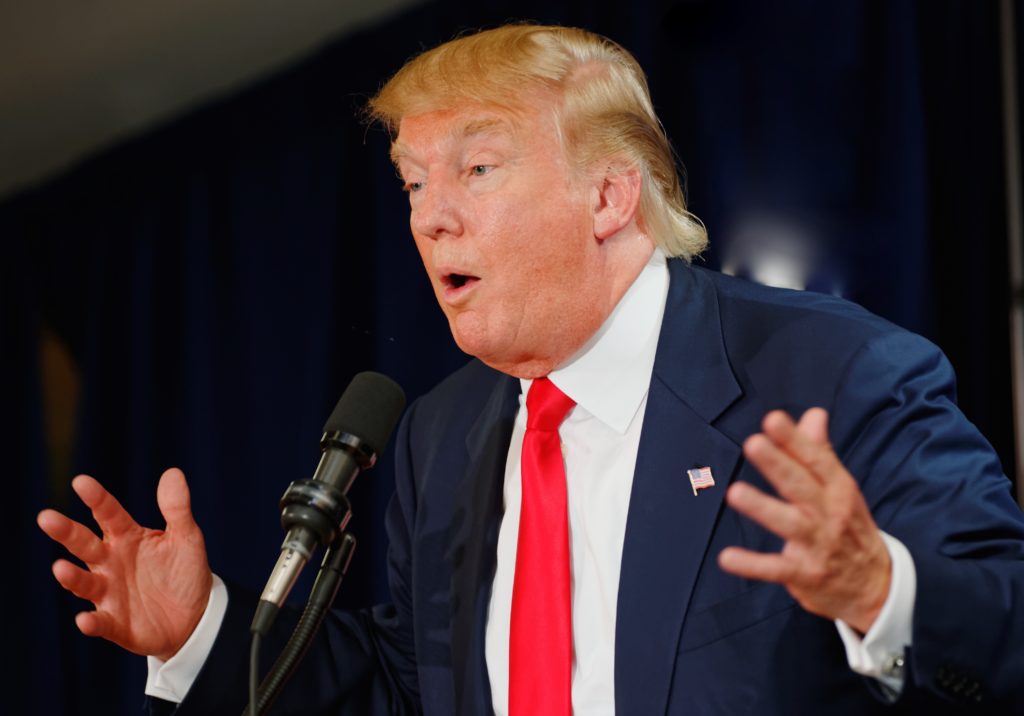Fact check: can Donald Trump be “disqualified” from the Presidency if he’s committed treason?

The FBI has publicly confirmed that it’s investigating the Donald Trump campaign for its alleged involvement in Russian election collusion, and one of Trump’s campaign advisers Michael Flynn has gone so far as to publicly request immunity. This has led to the popular assertion on social media that Trump can be “disqualified” from the Presidency if he’s found to be guilty of treason, or of any crime involving having rigged the election in his own favor.
In our Palmer Report Fact Check, we look at the three premises involved. The first is how someone is “disqualified” from running for President to begin with. The second is what happens to a sitting President who is caught committing a serious crime. The third is what legally constitutes treason.
“Disqualified” from running
There is a popular belief that a convicted felon can’t run for President of the United States. But the Constitution doesn’t address the matter, instead merely stipulating that the President be at least thirty-five years old and a natural born citizen. In fact Eugene Debs got his name on the Presidential election ballot in 1920 and received nearly a million votes, despite the fact that he was sitting in a prison cell the entire time (source: History.com).
The two major political parties each have their own rules for becoming that party’s nominee for President. But candidates can also get on the ballot through a third party or no party at all, simply by amassing a sufficient number of signatures. And aside from those two original stipulations in the Constitution, there is nothing that “disqualifies” anyone from running. The popular confusion may come from the fact prisoners can’t vote, and that in many states, convicted felons can’t vote even after they’re released. But this wouldn’t stop convicted criminals from running for President; they might simply not be allowed to vote in the race in which they’re running.
So when it comes to the popular belief that someone can be “disqualified” from running for President based on any crime they’ve committed, we rate that as False.
Once in office
This is more straightforward. The Constitution clearly spells out that a sitting President can only be tried and convicted of a crime by Congress. The House holds impeachment hearings, and if deemed necessary, the Senate holds an impeachment trial (source: senate.gov. What counts as an impeachable offense, and what is the standard for conviction? This is defined at the sole discretion of Congress itself, as we learned from the only two U.S. Presidential impeachments, carried out against Andrew Johnson and Bill Clinton. There are no legal circumstances that would automatically force Congress to begin the impeachment process, let alone force Congress to remove the President.
When it comes to the popularly debated assertion that a President is automatically “disqualified” from office due to having committed treason or election-rigging, we also rate that as False.
Treason
The FBI has not publicly stated which criminal charges it might or might not recommend against any specific member of the Trump campaign. But there is already popular debate online as to whether Donald Trump or his associates may have committed treason. The legal definition of treason under U.S. law generally points to it being a wartime crime (link). However, as spelled out by the U.S. Military itself (link), the United States has yet to establish a clear legal definition for what constitutes a cyber act of war.
So if the Russian election hacking is ultimately defined as a cyber act of war, and if Donald Trump is charged with conspiring with Russia in that act of treason, then he could theoretically be charged with treason. But again, while Trump’s associates would be tried in the court system, impeachment and conviction and removal of a sitting President – even for treason – is ultimately at the discretion of Congress. However as we learned from Richard Nixon, if a sitting President resigns, he can then be prosecuted through traditional Judicial Branch methods. As we’ve previously covered, the new President can pardon him from federal charges, but not from state-level charges (link). This may become relevant, as New York State appears intent on bringing state-level RICO charges against Donald Trump and/or his associates (link).
